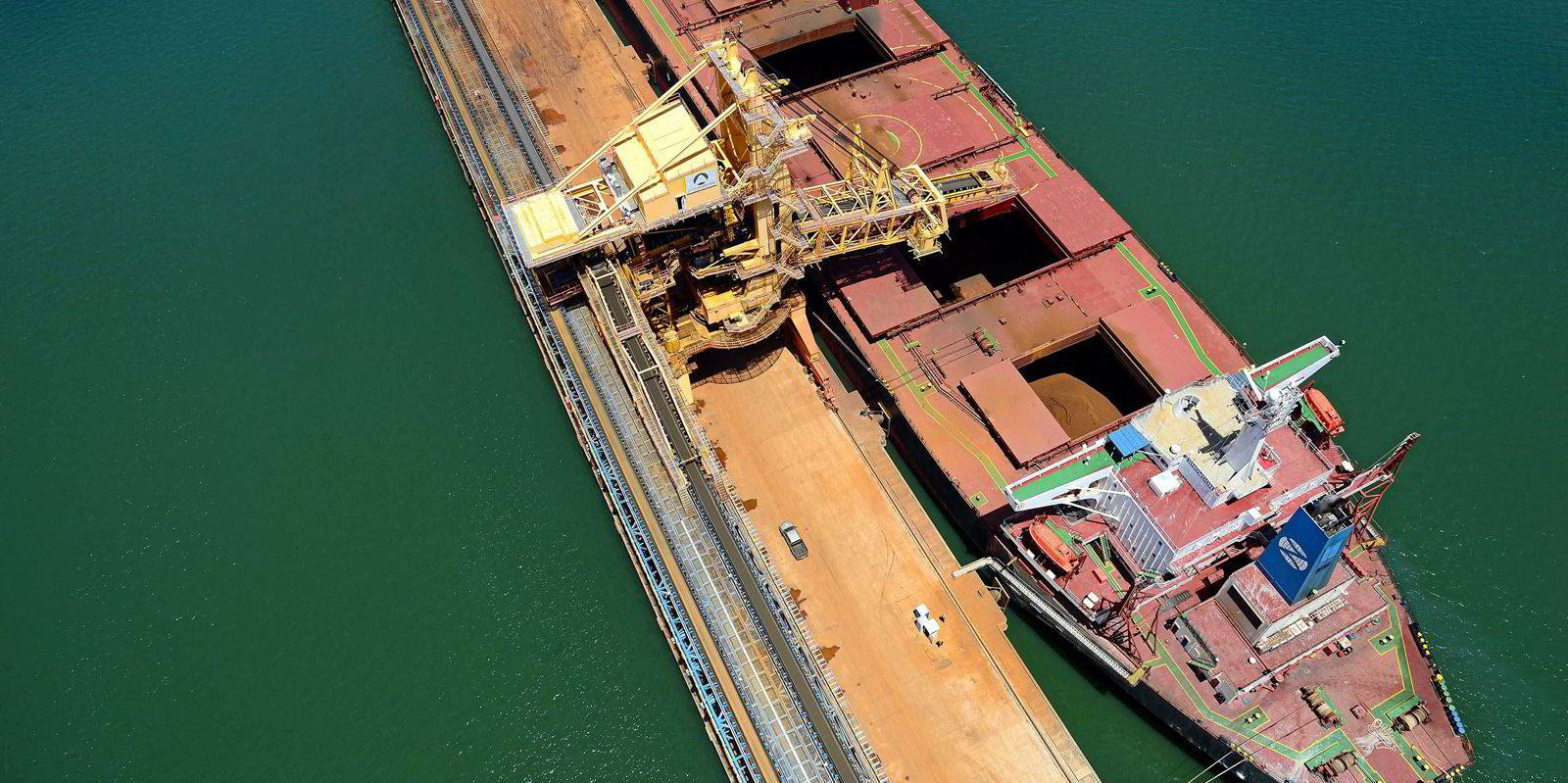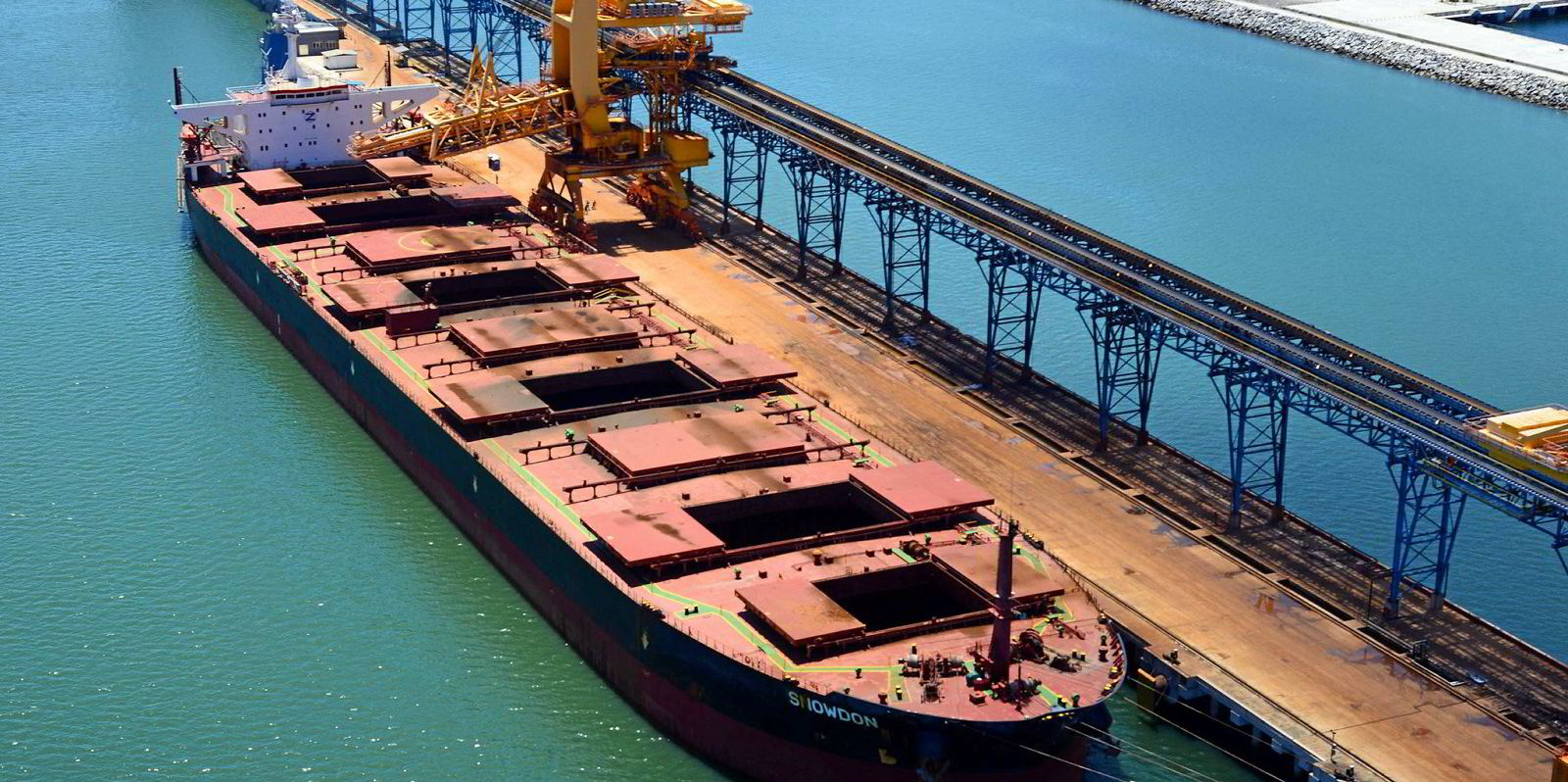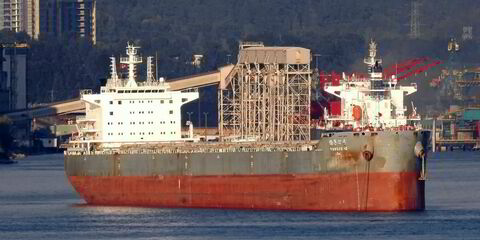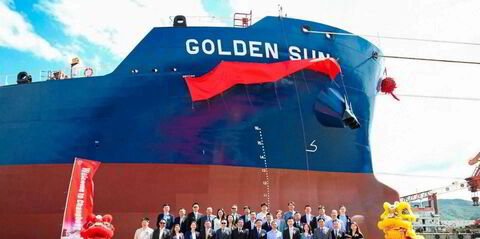A very tight vessel supply should keep the dry bulk sector afloat over the next few years despite lower demand for iron ore from China, according to market experts.
The country is expected to lower imports of the commodity as it looks to curb steel output in an effort to cut carbon emissions while facing a weak real estate market.
"Recently we've had some of the biggest declines ever in terms of the output that is produced in China," Braemar ACM Shipbroking lead dry cargo analyst Nick Ristic said during a Breakwave Advisors webinar.
China produced 71.6m tonnes of steel in October, down 23% from a year ago, according to the China Bureau of Statistics. 2021 production through October totalled 87.7m, down 0.7% for the same period last year.
"There are signs that the demand picture in China in the last few weeks hasn't been very positive," Ristic said.
This may mean less demand for capesize bulkers while smaller ships stay busy moving grains and steel, but dry bulk's extremely low supply should keep rates elevated, he said.
"The thing we think is going to is going to pick up that kind of supercycle moving average for the next few years is that limited supply group where we just have so few ships on order," he said.

"As a percentage of the size of the trading fleet today, we're looking at only 7.5% on the orderbooks ... all the way out to 2023-2024," he said.
"That figure is virtually locked in right out to the second half of 2024 potentially even 2025 if you're looking at ordering a new ship."
Vessel supply will in effect fall by 65 ships when slow steaming starts in 2023 to meet the International Maritime Organisation's Energy Efficiency Design Index for existing ships (EEXI), he said.
Heightened demand for thermal coal in Europe, China's ban on Australian coal and Guinea's export of 65 tonnes of bauxite to China this year should also benefit rates, he said.
Average spot rates for capesizes may not reach as high as the $87,000 per day they hit in October, but 2022 should still be a strong year for the dry bulk market, said Peter Lindstrom, Torvald Klaveness' head of research and the company's data platform.
"We're still in the midst of a pandemic." he said on a panel whose title asked, "Is the dry bulk upcycle still intact?".
China will probably pick up iron-ore demand, however, as its real estate market improves next year, he said.
"I don't think Chinese real estate demand or Chinese steel demand, in general, will remain muted as they are today throughout 2022," he said.
A "distorted" container ship market in which prices have skyrocketed amid unprecedented demand should continue to put further pressure on dry bulk shipping's tight supply, said Rahul Kapoor, IHS Markit's global head of commodity analytics and research at maritime and trade.
"They've never been so correlated, but in the smaller segments, we've seen a number of vessels actually carrying the containerised cargo," he said during the panel.





